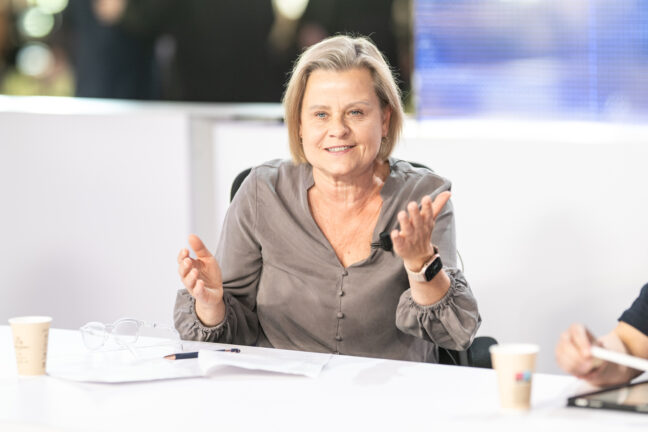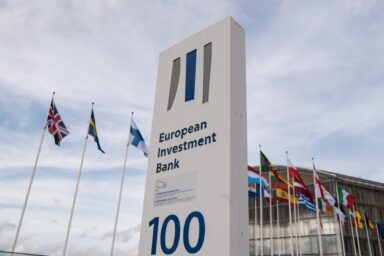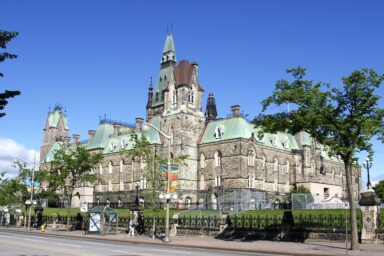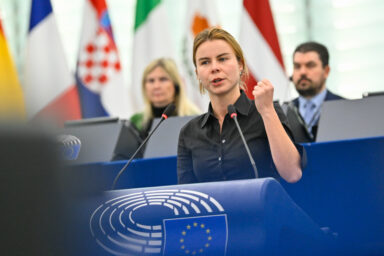Four sets of problems plague European agriculture: red tape, climate change, the rise of production prices, and the—equally undesirably—rising age of farmers. MEP Veronika Vrecionová, Chair of the Agricultural Committee in the European Parliament, insists the way out of the woods goes through more flexibility. In the latest episode of the EU Perspectives podcast, the Czech representative of the ECR group discussed the nuts and bolts of EU’s agricultural policies with fellow MEPs Norbert Lins (EPP/GE) and Thomas Waitz (Greens-EFA/AUT).
Many a European politician has many a complaint about the state of the continent’s agriculture. Few, however, are as well-positioned to speak of them as MEP Veronika Vrecionová (ECR/CZE), who chairs the influential AGRI Committee of the European Parliament. When asked about the challenges the sector is facing today, she had her answers ready.
Administrative burdens
“I think that European farmers face several challenges today. The first is excessive bureaucracy. I think that this really a big problem of the all farmers in all member states in all of Europe,“ Ms Vrecionová tapped the list of grievances. „Right now, they have a lot of new obligations and new restrictions, particularly those resulting from the Green Deal, the main programme of the last Parliament,“ she touched the neuralgic point of countless current European debates.
“I think that all farmers absolutely understand that they have to protect nature, water resources and climate,“ she said, adding that it is not the goal itself but the manner in which it is being pursued what makes them unhappy. “It brings them a lot of administrative burdens and they don’t have the time to work on their fields.“

Home-grown red tape
But then Ms Vrecionová was loath to lay the red-tape blame squarely on Brussels. “Some bureaucracy is also done in the Czech Republic. Also, we have numbers saying that about 53 per cent of bureaucracy is done by the Czech Republic. Forty-seven per cent comes from the European Union,“ she mentioned how the blame is apportioned in her native country.
She was not alone in her assessment. “All these debates around bureaucracy, I think they are valid. Indeed, I’m a farmer and I could tell you numerous stories about ridiculous bureaucracy,“ her fellow debater MEP Thomas Waitz (Greens-EFA/AUT), chipped in. “Unfortunately, I must say that 70 to 80 per cent of the bureaucracy I’m struggling with is created by my own member state and not by the European Union. We listen to farmers and they complain about the amount of administrative burden, but we have to be careful that we don’t take the whole responsibility to the European level. If we try to now deregulate on all fields, it will not have the effect on farmers that we want to see. We need to talk to national administrators there,“ he aimed at the core of the matter.
You might be interested
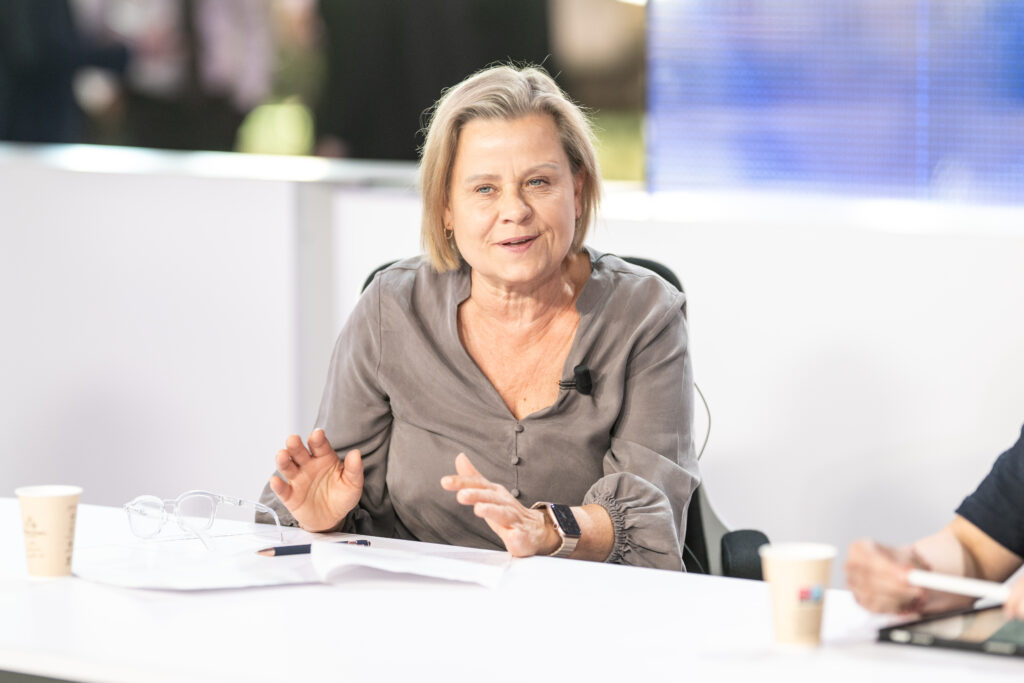
“Our problems are varied”
Ms Vrecionová then tackled the bureaucracy issue from a different angle. “The problem is that we have different problems. In the Czech Republic, we have two big problems which Austria doesn’t have. We have problems with the structure because the average size of a Czech farm is 130 hectares, while the average size in the European Union is 16 hectares,“ she mentioned the statistic to explain why she was in favour of a subsidy cap for her home country.
„Our problems are varied. We have the problem in the Czech Republic that we export milk, while we also import cheese. We have a lot of problems which are not present in Austria, or in Bavaria, which are very close to us. And that is why I think that we really need more flexibility.“

Prices, climate, age
The second problem, increasing input costs, is currently exacerbated by escalating international tensions, she says. “I am talking now about energy prices, about fertilizers prices and so on. We are just now in a very problematic geopolitical situation (which translates into rising prices internationally)“.
The third problem is, of course, climate change. “A lot of farmers have problems: some with droughts, some with floods, you can see it every day.“
Finally, the fourth challenge consists in the aging of the farmers themselves. “Right now, the average age of European farmers is fifty-seven years. That really is very high, and we have to work on this.“

Flexibility rules
The eternal struggle of the Union, the endeavour to find the right balance between central and national rules, appears particularly prominently pronounced in the context of agriculture. When asked about which kind of approach she favoured in this fiendish dilemma, Ms Vrecionová did not take sides directly.
“I am in favour of more flexibility,“ she stressed again. “And it means not only in member states, but also in general, because you have to react very quickly. We have Donald Trump in the United States with his dangerous tariff games, and we have to be able to react very quickly. That is another reason why we need to have more flexibility.“
Her debate partners concurred on the gravity of the situation. “Veronika spoke about the geopolitical tensions. We see a more aggressive approach from China. We see the threat of possible US tariffs,“ MEP Norbert Lins (EPP/GE) said.

Timmermans would not talk to us
Much hope—and fear—precedes the release by the European Commission of a new version of the Common Agricultural Policy, scheduled in July. There is word around town that, what with EU’s numerous priorities springing up on all sides, the needs of the bloc’s agriculture sector might get a short shrift, financially speaking.
„We are afraid, all of us, of this,“ Ms Vrecionová joined the worried chorus. „I am, really.“ She said she was in touch with Commissioner Hansen about the matter, too. „OK, we have right now a very problematic geopolitical situation, and we need to support defence more, but we also agree agriculture is a strategic sector, and we need to have food security here. And I hope that the Commission understands the situation that we really have to have a budget strong enough to support agriculture as well.“
The improved communication with the Commission marks a departure from practices past. “In the past term, one big mistake happened. I am talking just about the AGRI committee – Mr Timmermans (the Green Deal’s chief architect) came only once to our committee. Norbert was the chair; and we invited him a lot of times and he didn’t come, he didn’t discuss it,“ she recalled. “For example, we asked a lot of times for impact assessment in the past term, and we didn’t have it. And we warned that the farmers will not be able to work with all this new legislation – and that’s what has happened.“

Adaptation better than prevention
But while Ms Vrecionová finds common ground with the current Commission on the need to keep agriculture going strong, the Chair of the AGRI Committee does not see eye to eye with the bloc’s executive arm where the approach to climate change is concerned. “Listen, I also see the problem that, in the past few years, we spent a lot of time fighting against climate change instead of investing more into adaptation. We really just now have to start to work more on adaptation, to invest more into innovation, into research.“
In an echo of her faction‘s conservative creed, the ECR member stressed the need for better management of available resources. „We have to work with these subsidies better. I absolutely agree we have to try to do as much as possible to have enough a bigger budget for agriculture than we have now, but we also really have to manage it better.“
